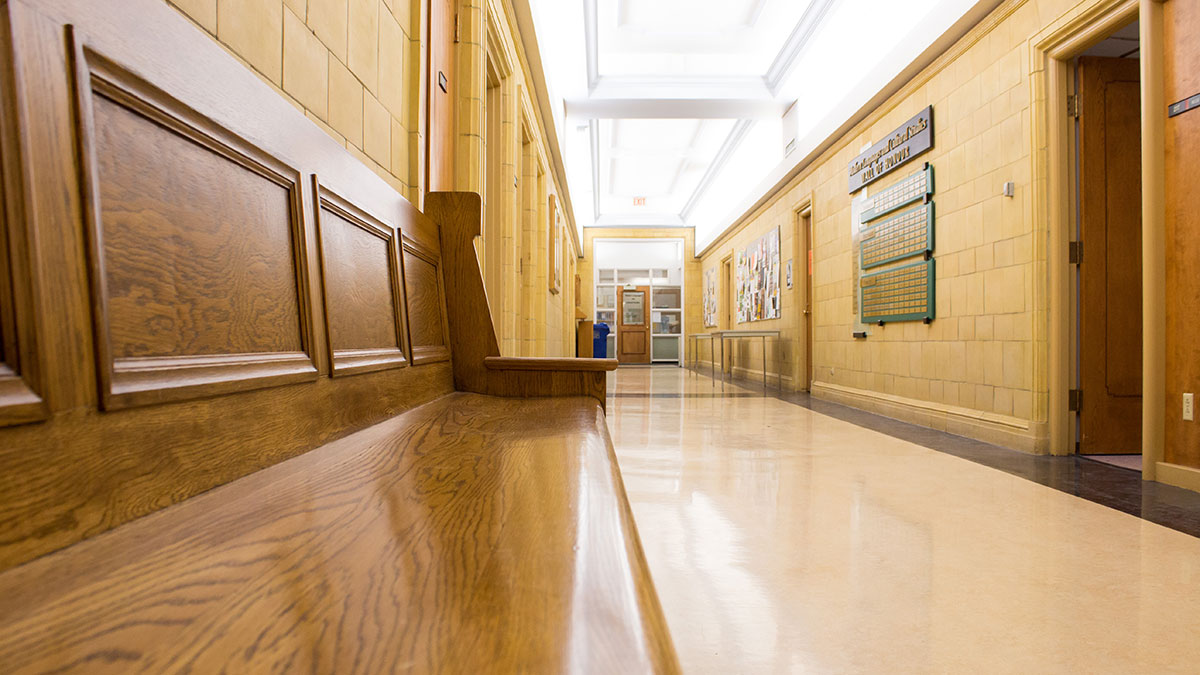Shalom: Religious Studies Program sees costly budgetary concerns
 Christina Varvis
Christina VarvisFor the last century, students at the University of Alberta have been able to study Judaism. But as of next December, classes in the field will no longer be offered.
With the retirement of History & Classics professors Ehud Ben Zvi and Francis Landy, the Faculty of Arts won’t have any instructors to teach Jewish studies. For budgetary reasons, replacing them isn’t an option.
Andrew Gow, Program Director of Religious Studies and Professor of History & Classics, emphasized the decision was financial and not academic.
“The Faculty (of Arts) and the Religious Studies program would like nothing more than to replace at least one of these people but the numbers simply won’t allow it,” Gow said. “And so instead of having made a decision, we’ve essentially been forced into a situation.”
Gow said this was just one more example of what has been happening in the Arts — leaving faculty members are usually not replaced due budget compression. In normal budgetary times, a faculty member’s departure opens up a budgetary line, which would be used to hire a replacement. In recent years, the Faculty of Arts has had to make up for budget cuts by using savings from leaving faculty members.
Jewish studies does not have its own program at the U of A. Instead, classes are offered through the Department of Interdisciplinary Studies as part of the Religious Studies program. Understanding of Judaism and the Hebrew Bible is important for its own scholars, as well as scholars of ancient Christianity. Unable to replace the retiring Jewish studies professors, the Faculty of Arts can no longer offer students as diverse of a base.
Gow said courses in Judaism have been of interest to students of many different backgrounds, the majority of those enrolled being Christian, Muslim and secular.
While the number of students enrolled in Arts is fairly stagnant, the number of tenured faculty members has seen a huge drop in recent years, Gow said. To allow students to continue to meet program requirements, sessionals are brought in. Unlike tenured instructors, sessionals aren’t conducting research and teaching on a full-time basis, and cannot attract graduate students.
In the past, Masters’ and PhD students of Judaism and the Hebrew Bible have come from all over the world to study under the U of A’s experts.
“In Religious Studies, the biggest and most important area in the masters and PhD has been the Hebrew Bible and ancient Judaism, because the two people who are leaving are internationally-renowned top scholars in their field who could have been teaching at Harvard or Cambridge,” Gow said.
Graduate degrees in Jewish studies will no longer be offered at the U of A. Gow said the university’s remaining expert in ancient Christianity will likely have trouble attracting graduate students since they won’t be able to gain a solid base in Judaism, which is very important.
“If we’re sitting down and making academic decisions, there’s no way in the world we’d cut Jewish studies,” Gow said. “But when we can’t afford to replace the people who teach something, whatever it may be, that topic just disappears, basically. There is no money.”




